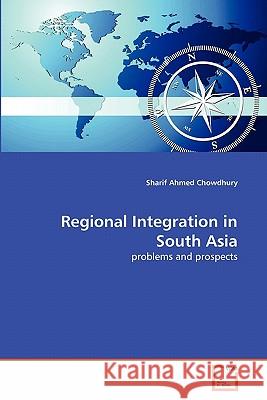Regional Integration in South Asia » książka
Regional Integration in South Asia
ISBN-13: 9783639294132 / Angielski / Miękka / 2010 / 104 str.
Sixteen years after the South Asian Association of Regional Cooperation (SAARC) was established, the organization remains more an illusion than an effective organization promoting regional integration. There have been eleventh SAARC summits, innumerable meetings of its committees and establishment of some SAARC institutions. Yet, in reality it has failed to address and develop any meaningful cooperation among nations that would begin to deal with the innumerable problems that keep the region hindered in poverty, disease, deprivation, unemployment, and foreign aid dependency. By accounts of human development, trade, and social safety, as the figures quoted in this research itself would show, South Asia remains poorer and less developed among similar regional arrangement. Finally, the research hypothetically tried to probe that psychological conflict such as mistrust and suspicion among the people as well as the states; economic and territorial inequality among the states; political unrest and lack of mass consensus within the states; and weakness and lack of institutionalization and mobility of the regional origination are the problems of regional integration in South Asia.











